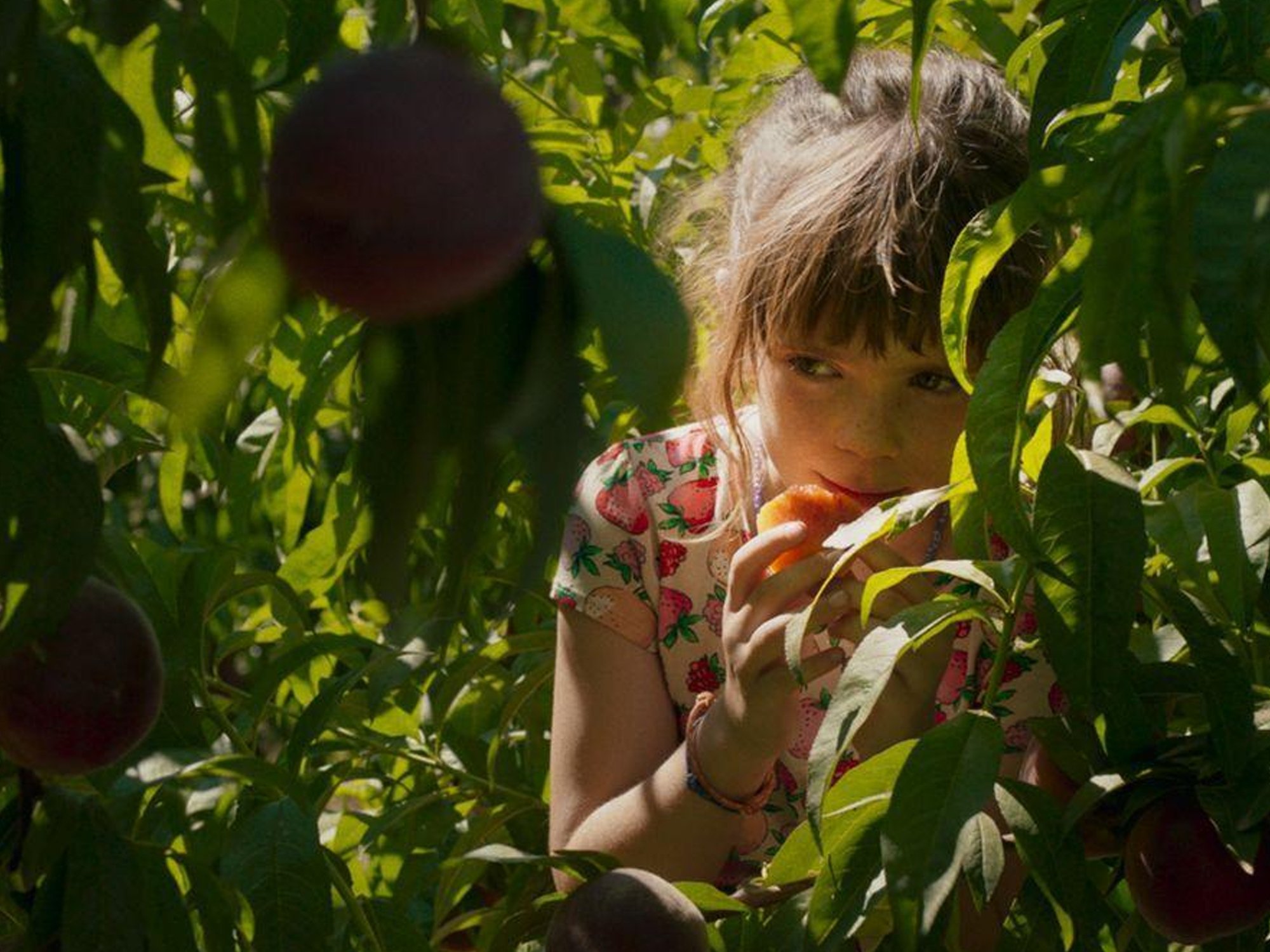Carla Simón’s almost neo-realist second feature Alcarràs is an elegy to a dying way of life in Catalonia. It is far from rose tinted although shot with impeccable beauty. A family who relied on the traditional verbal agreement to farm the lands of the wealthy landowners, the Pinyols, finds themselves suddenly displaced when the elder Pinyol dies and the heir decides to use the farmland to install solar panels.
The loss of the peach orchard is not the only threat the family is facing – corporatized farming is making their livelihoods untenable by driving prices down. Even if they finish the harvest the sale of the fruit will not lift the family out of generational subservience to those that rely on their labour but give little value to it.
Carla Simón uses mostly non-professional actors to add veracity to her work. It might appear to be the story of one family in crisis but is a wider narrative about how traditional farming methods are devalued and the passion of farmers for their craft is being trampled in a capitalist landscape they can’t keep up with. The other farmers in the co-op are suffering and try to mount protests to keep their farms afloat. “Fruit is priceless,” they chant but everything has a price and each price also brings with it a cost.
The family at the centre of the story is representative of many families, and also perhaps of traditional roles that are losing their value. Quimet (Jordi Pujol Dolcet) acts as the machismo patriarch of the family whose moods and tantrums threaten to completely derail the one precious resource he has left – the love of his kin. The elderly patriarch Rogelio (Josep Abad) whose father forged the verbal agreement with the Pinyols going back to when they sheltered them during the Spanish Civil War tries to gently remind the young Pinyol of his duty to them, but times have moved on. Roger (Albert Bosch) Quimet’s teenage son, and his sister Mariona (Xènia Roset) are trying to bridge the gap of the old and the new. Roger, particularly, takes pride in farming the orchard but cannot please his father who insists he should be paying more attention to his studies. Mariona wants to move beyond her small life. Iris (Ainet Jounou) the youngest daughter of Quimet is the most confused by whatever is happening around her – Quimet’s arguments with his sister and brother-in-law means that her twin cousins are no longer welcome to play with her. There is external suffering being foist upon Quimet but his intractability means he is transferring it to his own home.
The inevitable demise of Quimet’s family company Seros Fruits is played over one season, their last on that land. Like Sisyphus, Quimet is rolling a rock uphill. He resents change but he doesn’t know where to properly focus his resentment. Other farmers have sold or given up their land. His brother-in-law, Cisco has decided to work installing and maintaining the solar panels which he sees as a personal betrayal. Who is Quimet if not a farmer? In his fight he forgets he is a father, a husband, a brother. His wife Delors (Anna Otin) watches with bemusement as he pulls the solar panels from their home in a pointless protest that can only hurt them.
Carla Simón’s naturalistic camera imbeds itself into the Seros family like a quiet observer. She allows the audience to see all the splendour of the Alcarràs region in her wider shots and all the small and intimate moments of the family. There is great joy inside the house – Iris’ relationship with Rogelio is gently and touchingly rendered. There is also pain as Roger and Mariona try to understand their place in the changing milieu – Roger actively sabotages his own farm while Mariona is treated like a possession by Quimet and Roger and is buckling under the patriarchal social norms of the region. The greatest pain is how Quimet is blind to how his behaviour is actively hurting Rogelio (his anger that Rogelio did not get any agreement written down means they have no right to continue farming the land) and that by alienating his extended family he is denying Dolors, Iris, Mariona, and Roger the meaningful bonds that were the rhythm of their lives.
Simón’s thesis about the changing face of Catalonia is both angry and regretful. The system that disadvantages workers is both something that comes from a past in which the rich landowners had control and something that is contemporary in which corporations drive down the prices of fruit. Either way, the Seros family is representative of a swathe of people lost in between privilege and capitalism. The regret comes when we understand how farming is more than a job for people like Rogelio, it is an ode to the bounty of the land, his personal family history, and how precious knowledge from people intimate with the orchards and the growing of food, flowers, and trees will be lost when commercial farming takes over.
The small Eden of Rogelio and Quimet’s home eventually becomes reduced to only the house itself. Simón allows Quimet the slow realisation that his true anchor was not the orchard but his family. The final harvest passes, and they move into an unknown future but at the least they will be doing it together. A community is lost, a way of life gone, yet the house stands and the people inside it may yet find a way forward.
Director: Carla Simón
Cast: Josep Abad, Jordi Pujol Dolcet, Anna Otin
Writers: Carla Simón, Arnau Vilaró



